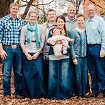TP 1b: Life Stages, Speaking & Vocabulary
Intermediate level
Description
Materials
Main Aims
-
To introduce & give practice in vocabulary related to age & stages of life.
Subsidiary Aims
-
Speaking.
Procedure (39-49 minutes)
T will show pictures from a webpage on the WB of the 5 oldest people in the world in 2015, and elicit from the Ss what do they think is the age and country of each person. Then T will elicit from the Ss what might be common for just these 5 persons. (5 oldest people in the world, only ones born in the 1800s etc.) T will try to get content FB with questions like: "Is there something surprising about these 5 persons?" (Ss might note that they are all women, they look very lively considering their age and 3 of them are from USA) T will move on to stick 7 different pictures representing stages of life on the WB and elicit from the Ss how old they think each person could be in terms of age range. T will write these ranges on the WB next to pictures as the Ss say them. Then T will elicit from the Ss few words to describe each age range.
Put the Ss into small groups and chest from the (whole) cut-up sentences A4 bold words. Ask Ss to think about which person or age group (on the WB) the words in bold describe and give each group a set of cut-up sentences and some Blu-tak. After GW ask one student from each group to stick sentences next to the appropriate picture. Check correct answers and meaning of the words (CCQs) with WC. Anticipated CCQs: "toddler" Can this person walk? [NOT REALLY] "adolescent" Is this person adult? [NO] Is this person's behaviour childish? [YES/OFTEN] "teenager" Is this person adult? [NO] Is this person's behaviour childish? [NO/SOMETIMES] "thirty something" Is this person over forty years old? [NO] Do we know the exact age of this person? [NO] "pensioner" Does this person work? [NO] Does he feel old? [MAYBE] "elderly" Is this person old? [YES] Is he middle aged? [NO] Drill the pronunciation of the words "adolescent", "toddler", "elderly" and "toddler".
Get the Ss to write down sentences using the vocab introduced in previous stage (1 sentence/word is enough). Sentences can be of people they know, their families, celebrities etc. After Ss are finished get them to work in pairs to tell each other what they wrote. T-S general FB.
Ask the Ss what is typical for different age groups. Elicit few ideas and write them under the pictures on WB. Write the words "wise", "rebellious", "overworked", "lively", "irresponsible", "happy" and "bored" on the WB. Act the words and ask Ss to guess which word was T acting and how they would explain the word to somebody who doesn't know the meaning of the word. Instruct Ss to discuss in small groups which words are typical characteristics of which age group and reasons for that. Whole class general FB.
Ss will individually make notes of advantages & disadvatages of each life stage. Before, T will demo this with one age group by eliciting ideas with WC. When finished, Ss will discuss and compare their ideas in small groups. General WC FB. Give the Ss a HO with questions about life stages. Ask them to mingle and ask a few people in the class. Ss can make short notes of the answers if they want. General WC FB. If there is time, delayed FB and error correction on the WB with WC.

